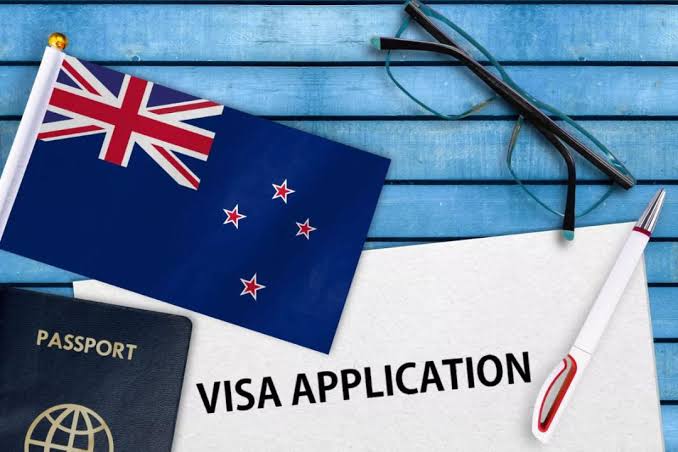Starting September 29, 2025, New Zealand will launch the Parent Boost visa, a new multiple-entry visitor visa designed to allow parents of New Zealand citizens and residents to stay in the country for up to 10 years. This initiative, announced by Immigration Minister Erica Stanford, aims to attract and retain skilled migrants by facilitating family reunification while ensuring minimal strain on public services. Unlike permanent residency pathways, this visa focuses on extended stays without granting residency rights, offering a balance between family connection and economic considerations.
The Parent Boost visa is valid for an initial five-year period, during which holders can stay in New Zealand continuously. After this, the visa can be renewed once for an additional five years, provided the holder spends at least three months outside New Zealand before the renewal. This structure ensures flexibility for families while maintaining controlled immigration flows, with an estimated 2,000 to 10,000 applicants expected annually.
Eligibility for the visa requires sponsors to be New Zealand citizens or residents who meet specific financial criteria. Individual sponsors must earn at least the median wage, while joint sponsors need a combined income of 1.5 times the median wage. Alternatively, parents can demonstrate financial independence by showing an ongoing income aligned with New Zealand Superannuation rates—$27,992 per year for a single parent or $42,678 for a couple, based on 2025 figures—or by holding available funds of $160,000 for a single parent or $250,000 for a couple.
Health requirements are stringent to minimize pressure on New Zealand’s healthcare system. Applicants must meet standard health criteria and secure comprehensive private health insurance, covering at least $250,000 for medical emergencies and $100,000 for cancer treatment. These measures ensure that parents can access necessary care without relying on public resources, aligning with the visa’s goal of self-sufficiency.
The application process will open on September 29, 2025, with fees and detailed guidelines to be published closer to the date. The government plans to review the program in 2027 to assess its impact on immigration patterns and public services. This review will help determine whether adjustments are needed to maintain the balance between family reunification and national interests.
The Parent Boost visa replaces earlier parent visa categories, which were paused in 2020 due to concerns over long-term costs to taxpayers. By offering a visitor visa rather than a residency pathway, the government aims to address these concerns while responding to the needs of migrant communities. The policy reflects New Zealand’s broader strategy to attract skilled workers in sectors like technology, healthcare, and engineering, where family proximity is a key factor in retention.
Immigration experts have noted that the visa’s financial and health requirements may limit accessibility for some families, particularly those from lower-income backgrounds. However, the government argues that these criteria are necessary to ensure the program’s sustainability. The income and asset thresholds are designed to confirm that parents can support themselves, reducing the risk of reliance on welfare or public healthcare.
For migrant families, the visa offers significant benefits, allowing parents to spend extended periods with their children and grandchildren in New Zealand. This is particularly appealing for those who value family unity but do not seek permanent residency. The ability to stay for up to 10 years provides stability and connection, fostering stronger community ties for migrant families.
The introduction of the Parent Boost visa aligns with New Zealand’s efforts to remain competitive in the global talent market. Countries like Canada and Australia have similar family reunion programs, and New Zealand’s new visa aims to match these offerings while maintaining strict controls. The policy is expected to enhance New Zealand’s appeal as a destination for skilled migrants, particularly from Asia, the Pacific, and Europe.
Applications will be processed through Immigration New Zealand’s online portal, with decisions based on the completeness of documentation and compliance with eligibility criteria. Applicants are advised to prepare financial records, health insurance policies, and proof of sponsorship well in advance. The government has emphasized that incomplete applications may face delays, underscoring the need for thorough preparation.
The Parent Boost visa is part of a broader suite of immigration reforms announced in 2025, including adjustments to work and student visa categories. These changes reflect New Zealand’s response to post-pandemic economic challenges and the need to balance population growth with infrastructure capacity. The visa program is expected to contribute to social cohesion by enabling families to stay connected across generations.
Stakeholder feedback has been mixed, with migrant advocacy groups welcoming the visa but calling for lower financial thresholds to improve accessibility. Business groups, meanwhile, have praised the initiative for supporting talent retention without adding significant costs to public services. The government has indicated openness to refining the program based on early implementation data.
The Parent Boost visa represents a pragmatic approach to family reunification, prioritizing economic sustainability while addressing the emotional and social needs of migrant families. By limiting the visa to visitor status, New Zealand avoids the long-term fiscal commitments associated with residency programs. This distinction sets the visa apart from previous parent visa schemes and underscores the government’s cautious approach to immigration policy.
As the launch date approaches, Immigration New Zealand is expected to release additional resources, including webinars and FAQs, to guide applicants. These materials will clarify complex requirements, such as the calculation of available funds and acceptable health insurance providers. Prospective applicants are encouraged to stay updated through official channels to ensure compliance with all conditions.
The Parent Boost visa is poised to reshape family migration dynamics in New Zealand, offering a viable option for those seeking extended stays without permanent settlement. Its success will depend on effective implementation and the government’s ability to address accessibility concerns. With the 2027 review on the horizon, the program’s long-term impact on New Zealand’s immigration landscape remains to be seen.




